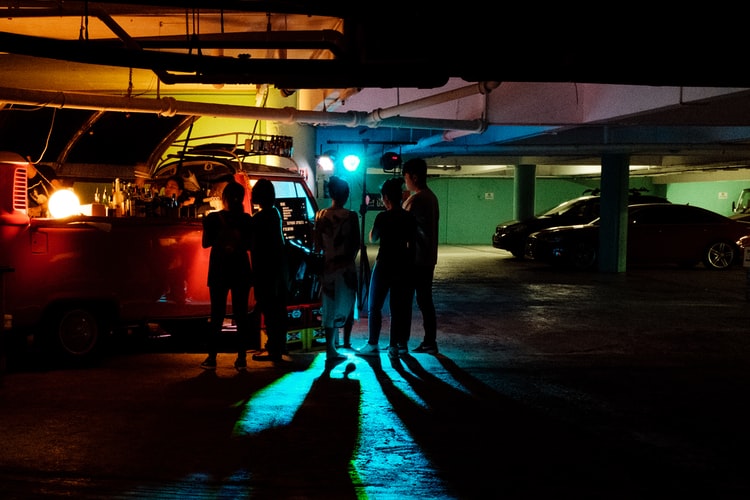Have you been to a dance bar?
I hadn’t. And I discovered that it was not as ‘immoral’ as I thought it would be. I tried to look at it objectively – as just another establishment trying to profit from whatever it is that people are willing to pay for. If people are willing to pay to watch women dance while getting progressively drunk, why not profit from it? Basic capitalism, really.
Are dance bars different from other industries profiting off of peoples’ vulnerabilities and suppressed desires? Are they different from a therapist trying to help you make sense of the world in exchange for a sizeable fee? Or even from the luxury goods industry profiting from your vanity?
Are dance bars an ideal workplace for women?
The short answer is no. I don’t think they are. To say the least, there are no health or tax benefits and no incentives apart from tips and admiration from a pleased audience.
It can get violent in the absence of security. While the violence could be similar to domestic or societal violence that many women face, the main difference is that in a dance bar, they may have a better chance of recourse against it.
Also read: At Delhi’s Red Light Area, Sex Workers Plead For Help
Since the relationship between the women and bar owners is that of profit, it’s in the management’s best interest to keep their employees safe. When I spoke to the security guard/bouncer, he seemed to be extremely concerned about the women’s wellbeing. I saw him throw out some men who were being disrespectful and I high-fived him for it. We struck up a conversation. He was a nice man, albeit with a slightly intimidating stature and presence befitting his job! We became friends for the night.
Is there sexual violence/harassment in the environment of a dance bar?
While I wasn’t there long enough to speak to the women in depth about this, I am certain there is. Sexual harassment is prevalent, even in the most formal workplaces and I’m sure an industry that primarily sells sex cannot be devoid of it. I don’t need to read research papers to draw that conclusion. As far as violence or exploitation from the management goes, I am not sure what recourse the women would have. However, in this case of harassment perpetrated by the customers, there is the basic level of protection offered by the presence of the security guard.
Does this mean I condone bar owners and this industry and think they are ‘good’ or ‘ok’?
Not at all. I am simply not placing moral judgment on the people involved in this industry per se. They may be anywhere between ‘good’ and ‘bad’, they may exploit their employees, or not. Employees may be subjected to violence. Or not. It depends on the particular bar, really. Ultimately, it depends on the people involved.
What I’m trying to say is that this is not hugely different from most workplaces, since issues of harassment and exploitation are common in our country. The toxic culture exists way beyond dance bars, so we should not pretend otherwise.
Do the dancers have job security?
Not really. But then again neither do many people, once their contracts expire. The pandemic has highlighted just how little job security most people have.
Would I visit again?
To be honest, I don’t know.
I’m not a huge fan of loud, crowded places. The reason for me not going is not going to be my moral compass or a fear of the crowd, though.
When you enter new spaces you should ideally leave your insecurities, biases and judgements behind. This is one rule that has always served me well.
The people I encountered at the bar seemed to be just ordinary, decent folk. A soldier passing the time as he waited for his train back to Hyderabad. A government official who had had a fight with his superior. A man who claimed to be a scientist working with DRDO. I guess you can be anyone in these places. I pretended to be myself.
When the time came to leave, I hugged the (rather tuneless) in-house singer goodbye and conveyed my regards to the dancers who responded to my attempt to hug them goodbye with politely extended hands. I think it was a ‘No Touch’ policy. I didn’t take it personally, of course, and expressed my admiration for their dance moves as I shook their hands. Some of them were really good dancers!
I forgot my bag on the way out and the friendly bouncer came rushing up and handed it over. I hugged him too, and he invited us to return. It was probably because we were paying customers, after all, but I’d like to believe we had a connection.
I have, of course, oversimplified the answers to the questions that I pose. I never intended a complex analyses of dance bars, and just wanted to offer my experience. You can by all means read up and research further if you’re interested in the culture of dance bars.
Better yet, visit one and speak to the people involved to try and understand their lives. If there was ever a time for empathy, it’s now.
Aman Ashesh is a lawyer currently working as a research associate with a reputed research organisation.
Featured image credit: Christian Chen/Unsplash

